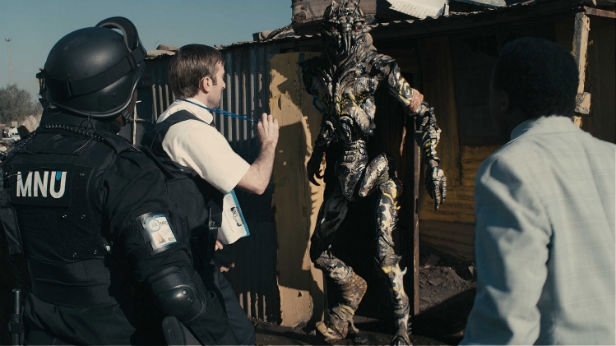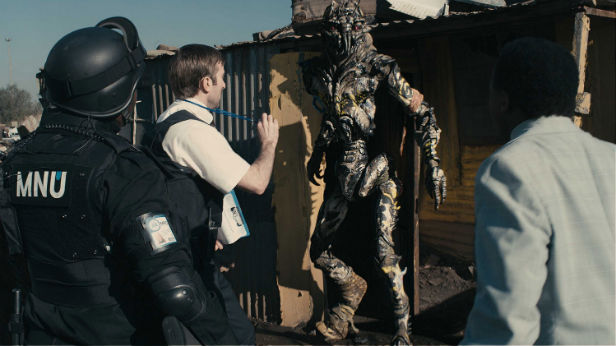
Over the last few years, genre fans have witnessed to an explosion of creativity coming out of South Africa in filmmaking, fiction and comics. With films like District 9 and books like Zoo City, The Three and Apocalypse Now Now, we’re seeing more and more fantastic work in fantastic film and fiction.
We asked authors Lauren Beukes (Zoo City, The Shining Girls, Broken Monsters), Sarah Lotz (The Three, Day Four) and Charlie Human (Apocalypse Now Now, Kill Baxter) and artist Joey Hi-Fi about whether we can call it a boom, why we’re seeing so much great work from South Africa, and whether social concerns inevitably creep into creative output.
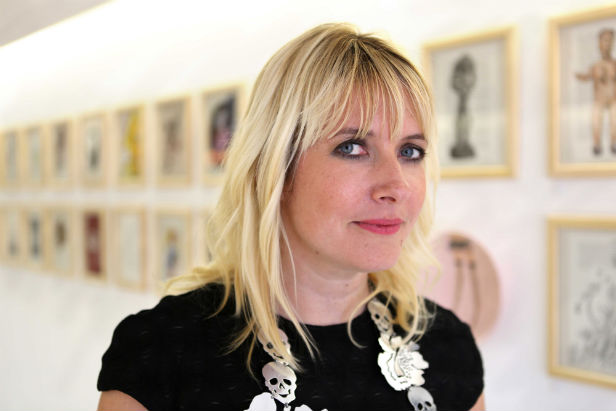
Is it fair to say we’re seeing a boom in South African genre at the moment?
Lauren Beukes: It’s a fair assesment. The success of District Nine and Zoo City have shown local publishers that there is a market for SF or fantasy . It also helps to have amazing champions of South African literature, from agents like Oli Munson and Isobel Dixon and John Berlyne, to the good people of Pornokitsch who publish South African short stories and commission South African illustrators. It feels like we were all trapped in a glass bubble looking out at the wide world of genre and longing to get there and some of us stumbled on the door and left it open behind us and it and it was that easy.
Sarah Lotz: Fair! Just last year Charlie Human, Kgebetli Moele, Lauren Beukes, Louis Greenberg, Andrew Salomon and Alex Smith all brought out stellar genre-busting novels, to name just a few.
Joey Hi-Fi: It’s definitely a ‘boom’. Although I think it’s a ‘boom’ only when compared to trickle of genre fiction and movies in the years that preceded it.
Charlie Human: There really is, but it has been bubbling there for a long time. It’s taken people like Lauren Beukes and Neill Blomkamp to prove to South Africans, as much as to the rest of the world, that success can be found with unique personal visions.
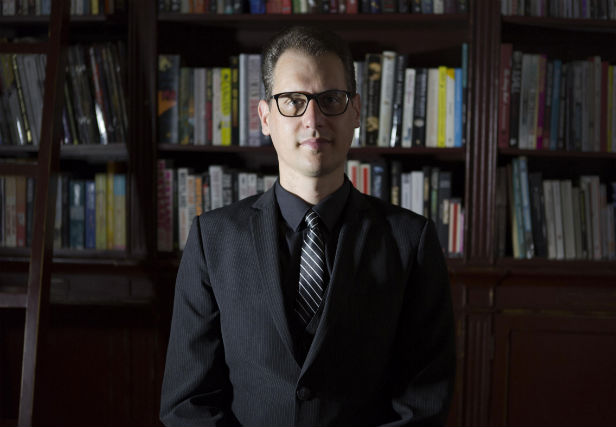
Why do you think we’re seeing this now?
JH-F: I think it in part is has to do with the South African psyche. South African creatives are now only beginning to shake off the ‘cultural cringe’ that beset us for so many years post apartheid. That idea the that if it’s South African, it somehow falls short of international standards. It was the Eye of Sauron-esque Shadow under which we all laboured.
Books like Moxyland (2008) & Zoo City (2010) by Lauren Beukes, as well as films like District 9 (2009) by Neill Blomkamp opened the door for genre fiction and film in South Africa. Once local creatives, publishers etc saw that South African stories – and in this case, ones with a sci-fi or fantasy slant – could do well on the international stage, it gave them the confidence to take the plunge.
In my opinion, previous to 2008, South Africa had very little in the way of published genre fiction. I remember when Lauren Beukes was writing Moxyland, there was little – or no – market for a South African sci-fi book. It took a forward-thinking local publisher like Jacana, who are known as risk-takers, to get it published.
SL: It’s not quite an overnight success story! The new wave of SA genre fiction (for want of a better term) has been building over the last five years or so, helped greatly by Neill Blomkamp’s District 9 and trail-blazer Lauren Beukes’ incredible success. As far as SA horror and Spec fiction goes, this also started to boom thanks to the bravery of a few grassroots ‘zine publishers – awesome folk like Joe Vaz who sold his car to finance SA’s first horror magazine, Something Wicked. Five or six years ago you’d be hard-pressed to find a South African publisher willing to publish horror/sci-fi; now they’re far more open to it.
CH: There are obviously a lot of theories about the role post-apartheid literature in South Africa. My own take is that the revolutionary impulse has been channelled more into individual understandings of how to live within a still very much divided and imperfect society. The rest of the world resonates strongly with that; more people are realising that their own societies, no matter how first-world and glossy, have some major systemic issues too.
LB: Because publishers are more open to it, because we’ve seen successes that prove it’s possible, because we have amazing champions.
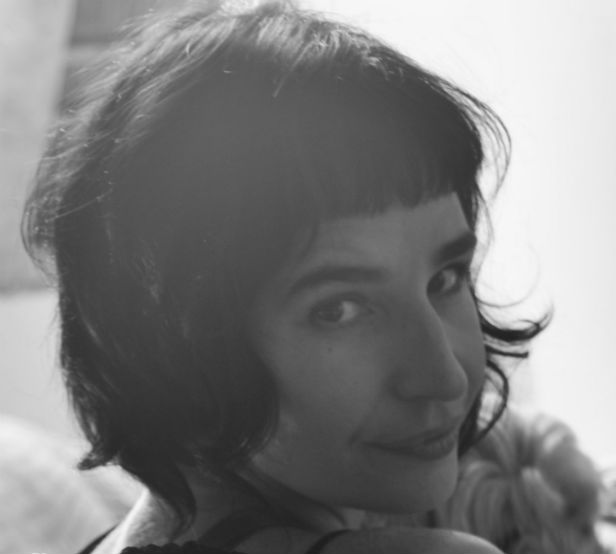
It’s easy to read a political and/or social subtext into a lot of the stories being told. Is commentary something that you’re aware of while writing; is it a conscious decision?
LB: For me, yes, absolutely. Being South African informs my worldview. I’m very aware of social issues because we trip over them in the street here. It’s a raw wound laid bare – the howling ghosts of history who still haunt us, apartheid’s legacy, racism, sexism, homophobia, economic divides like chasms between us. How could that not affect my writing and what I choose to write about?
SL: Initially it was a subconscious thing – for years I was hyper-sensitive about not being preachy and loading a novel (especially YA novels) with loads of message. But that’s bollocks really and I’ve stopped being quite so ignorant. I’m not sure it’s possible to write honestly about SA in any genre without being political/socially engaged to some extent, even if you write popular/commercial fiction, YA or erotica. Unless you’re a sociopath or in denial (or, in some cases, in politics) it’s impossible not to be aware of – for example – the vast rich/poor divide that blights the country.
CH: Every story has its politics. Supporting the status quo is as political as criticising it, it’s just not always as visible. I think a lot of writers have a half-awareness of the larger themes they’re writing about, like something they keep seeing in the corner of their eye but can’t quite catch.
JH-F: In South Africa I think it’s difficult to tell a story without political and/or social subtext. Given our history and the challenges we face in South Africa today – I think it’s written indelibly into our collective subconscious. It’s hard to not be affected by the political and social realities in South Africa. Most of the creatives I know are constantly aware of it and as a result it’s woven into their work in some way.
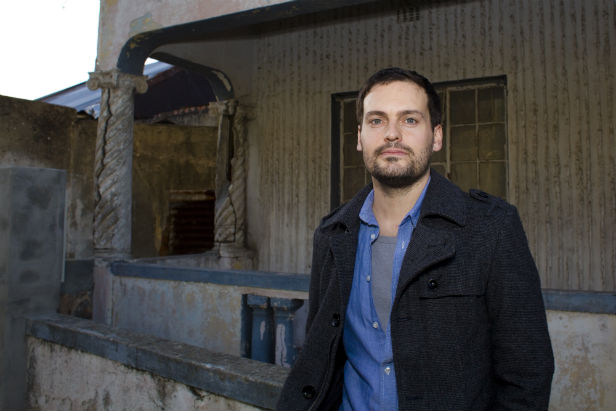
Is there something liberating about genre, that you can tell these kinds of stories that draw these parallels?
SL: SA’s present and future is so uncertain (ie, what exactly is the ‘new South Africa’ – no one seems to know) and the spectre of Apartheid so horrendous, that speculative fiction can, to some extent, explore the multiple futures/pasts of a country still in flux. And I suppose it could also provide an imaginative distance that could help cut through the cultural cringe that still blights SA’s tiny local fiction readership. That said, our crime genre scene does very well internationally – Margie Orford, Deon Meyer, Roger Smith and Mike Nicol are all acing it across the globe – and their stuff tends to be powerful, hyper-real, hard-hitting stuff.
JH-F: From a book cover designer and illustrator’s perspective – I’d say definitely. Although I am fond of literary fiction, Genre fiction is were I really found my voice. There’s an energy an irreverence to South African genre fiction which I particularly enjoy. It’s a new frontier of sorts. It makes designing book covers for them a total blast.
Genre is also a way to tell South African stories without them being perceived as overtly heavy, political or guilt-ridden. For a long time we were starved of locally created sci-fi, horror or fantasy books set in South Africa. That, thankfully, has now changed.
LB: Genre works like a distorting mirror that allows you to see the world more clearly. By fraying reality, you can get over issue fatigue, to explore the big, horrible things that are exhausting in real life in a way that’s just enough removed to give you a new perspective.
CH: Metaphor is a language the psyche intuitively understands, and genre offers infinite ways to use it. But pushing beyond the boundaries of the real world is far more than that. It’s about creating things that people can experience nowhere else from nothing. That’s why I do it.
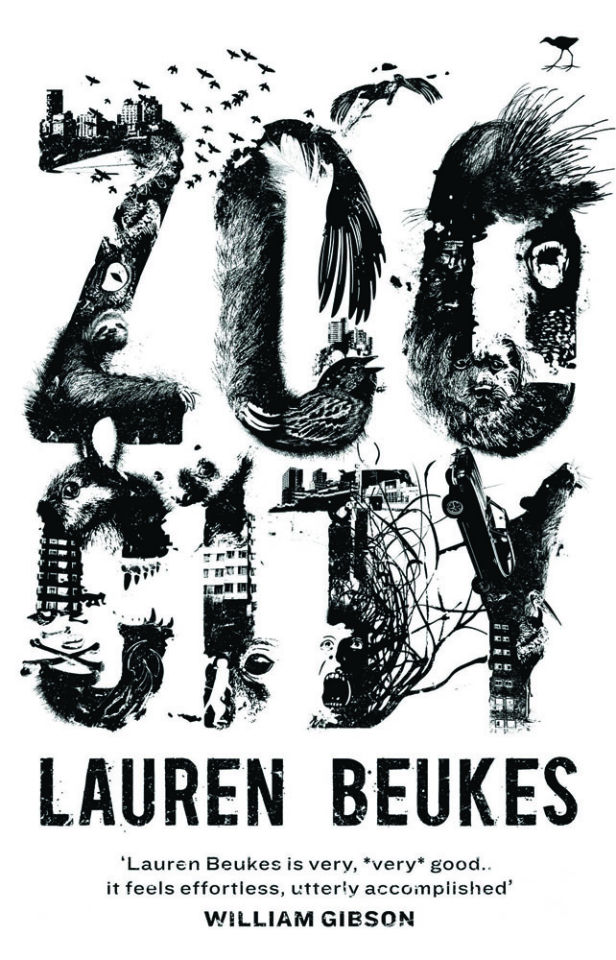
Is there a strong sense of a South African artistic community?
JH-F: Most definitely. There is also an eagerness to help each other out.
CH: There is, although it’s more like what Brian Eno called ‘the scenius’ – the intelligence of a particular place and time. Eno said “let’s think about the whole ecology of ideas that give rise to good new thoughts and good new work.” That’s how I feel about SA. It’s not just about books but also about the innovation in music, food, design, fashion etc. The individual artist is not the sea, they’re just a fish. The whole thing happens more happens by a kind of osmosis than by a concerted effort to be a community. Which is as it should be .
SL: The SA writing community is incredibly supportive – like a family, really. Most of us have been through the trenches – there are very few overnight success stories – and websites like bookslive.co.za and excellent indie bookstores like the Book Lounge in Cape Town have also helped foster a sense of community and support. There is a sense that it’s cliquey and all about slapping each other’s backs, but the SA publishing scene can be tough, so hanging out with fellow soldiers can make all the difference. I have to say that the UK genre writing scene is also wonderful, with tons of support for emerging writers.
LB: Very much so. Again: there are champions like Ben Williams who founded BooksLive, which created a writing community from nothing, or Something Wicked magazine and amazing indie bookstores like The Book Lounge.
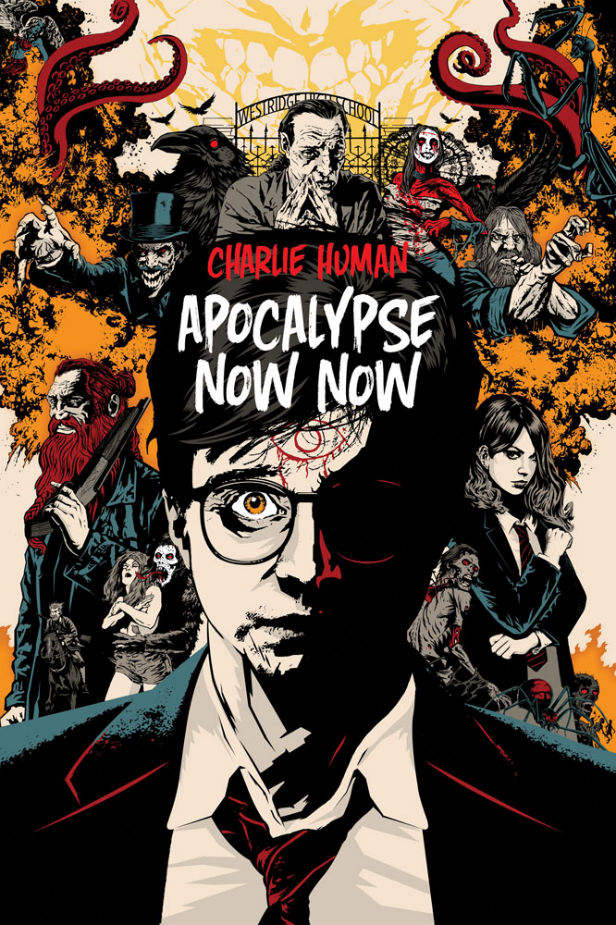
Is there a South African artist, author or filmmaker that you’re particularly excited about?
JH-F: Argh! Question kryptonite! Do I have to choose only one? Besides being excited about what writers Sarah Lotz & Lauren Beukes comes up with next, I’m also keen to see what literary xenomorph bursts forth from Charlie Human’s chest. His first two books, Apocalypse Now Now and Kill Baxter were delightfully twisted and unlike anything I’d read for a while.
LB: Just one? I’m excited about Sam Wilson, whose debut novel will be coming out next year. I worked with him and Sarah Lotz in the writers room of an animation studio for years and I know just how brilliant and twisty his mind is and I can’t wait to read the book.
CH: I can’t wait for Sam Wilson’s novel to be published.
SL: Illustrator and author Alex Latimer and multi-award winning writer Diane Awerbuck have recently collaborated on a very exciting project that will hopefully be published this year. But really, there’s so much coming down the line that I could fill up this space with names. Lauren Beukes recently set up a blog called The Spark (http://laurenbeukes.com/spark/), which highlights new SA fiction – there’s not a name on there, for example, that isn’t worth checking out. Art-wise, I’m a giant fangirl of Joey Hi-Fi and Nicholas Hlobo, but who isn’t?
Broken Monsters by Lauren Beukes is available now from Harper Collins. Kill Baxter by Charlie Human is available now from Century. Day Four by Sarah Lotz is on sale 21 May from Hodder & Stoughton. Joey Hi-Fi has co-written a story with Lauren Beukes for the DC Comics anthology Strange Sports Stories, on sale 18 March, and is currently designing the UK cover for the new Nnedi Okorafor novel The Book of Phoenix, published by Hodder & Stoughton. See more of his work here.
Keep up with the latest genre news with the new issue of SciFiNow.
